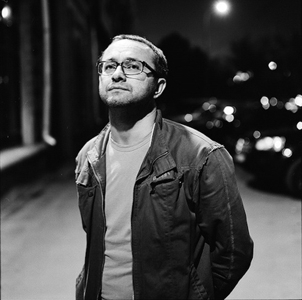Elena: Movie Review
10/25/2011
The best film that I saw in an altogether strong first week at this year’s London Film Festival was Andrei Zvyagintsev’s Elena (2011), a movie that fully confirms the Russian director as one of the most vital talents in contemporary cinema. Zvyagintsev follows The Return (2003) and The Banishment (2007) with an intimate, subtle but bracingly intense drama that intelligently and feelingly explores issues of class and social status in contemporary Russia. It does so through the story of the title character (played with blinding brilliance by Nadezhda Markina). Elena is a woman caught, essentially, between two worlds: that of her poor son and his (ever-expanding) young family and that of her wealthy second husband Vladimir (Andrei Smirnov), who’s none too sure that he owes Elena’s brood any financial favours at all (“I married you, not them”). The manner in which the protagonist opts to resolve this dilemma leads her into some unforeseen territory indeed.
A Tarkovsky for those of us who (confession time) have been bored by the majority of Tarkovsky’s work, Zvyagintsev is as philosophically-inclined as his illustrious predecessor but without losing sight of character and narrative. Elena is a marvellously assured piece of filmmaking: beautifully rhythmed; rich in telling, unstressed details; and full of spaces for the viewer’s involvement and interpretation. It also proves - if proof were needed - that Iris Murdoch’s dictum that “language is soaked in the moral, literature is soaked in the moral” may be applied with equal relevance to film. The thorny ethical dilemmas that result from Elena's predicament are many. But for me perhaps the most resonant question that the movie asks might be: does the notion that “the last shall be first” refer, these days, simply to the opportunity to watch trash on a wider screen TV? But there's no overt proselytizing going on in this movie. All of the characters are viewed with a very clear eye indeed, and the expert way in which Zvyagintsev allows our allegiances to shift (and shift again) as the story develops is one of the deep satisfactions that his film offers.
As our heroine progresses through identities in her daily encounters - from wife-cum-nursemaid to bourgeois matron, cuddly babushka to criminal - so the movie shifts discreetly but dynamically through genre codes, moving from quiet observational character study to suspense drama, propelled at times by hypnotic snatches of Phillip Glass, and arriving at an ending that dispenses the kind of subtle chill you may find it difficult to shake off. Thrillingly good. Trailer here.
Post-script: In terms of other films screened so far at the LFF, kudos, too, to Miranda July’s The Future, a gloriously quirky, heartfelt and surprising meditation on time that made me exclaim an enthralled “Wow!” on two occasions, and Andrea Segre’s tender Li and the Poet, about the relationship between a Chinese immigrant (Zhao Tao) and a fisherman (Rade Serbedzija) on the Venetian lagoon island of Chioggia. Time permitting, I’ll hope to write detailed appraisals of these and other films in the LFF next month.
Alex Ramon
www.boycottingtrends.blogspot.com
